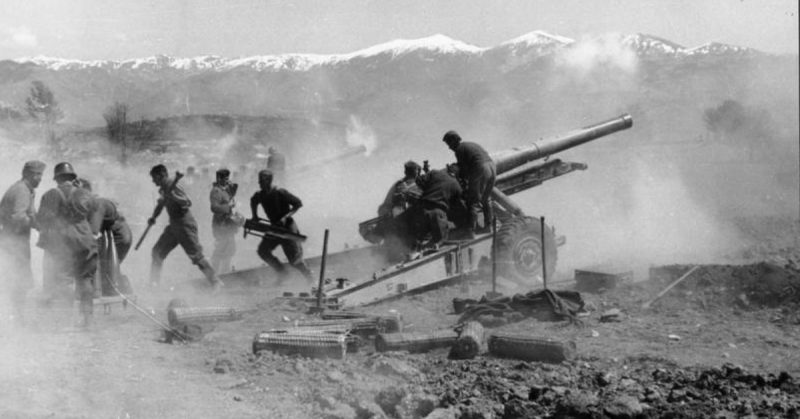The Battle of Thermopylae was quite the epic stand. We have talked about the bravery of the Spartans a thousand times over and made multiple documentaries and movies about the battle at the “hot gates”. But the Battle of Thermopylae in 480 BCE was but one of many battles fought in that narrow pass. Over thousands of years, the site has been a place of stout defenders winning the day, overwhelming assaults breaking through into Greece, and even strategic holding actions similar to the original stand.
The 480 BCE battle is just the earliest detailed battle that we know about, but even evidence from descriptions of the 480 BCE engagement clearly show that the site was a well-used defensive chokepoint long before the Persian invasion. Here are some of the many other battles fought at that famous pass.
323 BCE: Lamian War: Greeks Try to Buck Macedonian Rule
After Alexander the Great had consolidated his father’s conquest of Greece, the region bore the rule of the Macedonians. Once the great leader died, however, the Greeks saw their opportunity to regain their collective independence.
Many Greek cities pledged troops and a massive combined army was headed by the Athenian general Leosthenes. The Greeks first defeated the Boeotian Greeks allied to Macedonia at the famous site of Plataea before taking a defensive position at Thermopylae.
The Macedonian general, Antipater, was waiting for an army of 10,000 to reinforce his 14,000-man army. He decided that these reinforcements would take too long to arrive from Asia and attacked the pass. Before he could do so, the Macedonian-allied Thessalians switched sides to the Greek cause. In a reversal of odds from the Greco-Persian battle, the defenders of the pass had about twice as many men as Antipater.
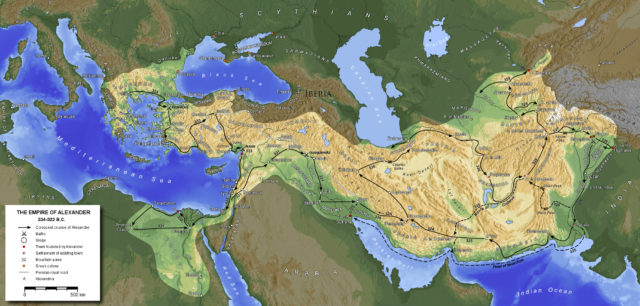
The battle was a defeat for Antipater, though he was able to make an organized retreat to the nearby town of Lamia, where he was put under siege. The Greeks would go on to win more land battles, but they were repeatedly crushed at sea by the Macedonian navy. They would eventually lose the land battle of Crannon, but had fought well enough that they gained generous peace terms.
279 BCE: The Gallic Invasion
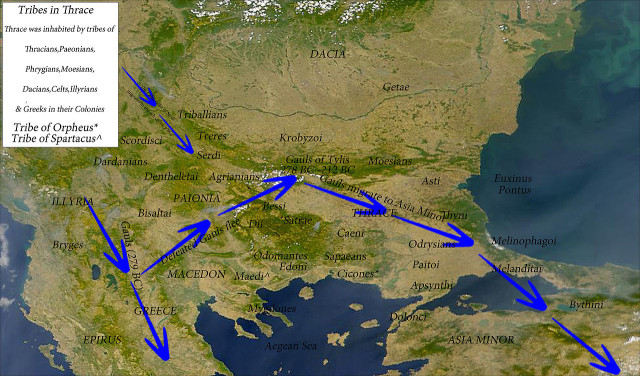
It wasn’t just the Romans who had to deal with barbarians on the warpath; the Great Celtic Migrations sent Gauls as far as Asia. During their migrations and invasions, the Gauls shot into Greece where they faced a combined Greek army from Athens, Boeotia, Aetolia, and Phocis. True to form, the Greek armored phalanx coupled with the bottleneck of Thermopylae to stop the masses of Gauls. The Gauls had massive swords requiring a lot of room to swing, and so each Gaul faced multiple Greeks in their tighter formations.
The general of the Gauls, Brennus, decided to take the Aetolians out of the battle by sending a part of his army to attack their nearby homeland. The Aetolians took the bait and a spread-out skirmish ensued. The fighting was fierce in both areas, and women and the elderly of Aetolia took to fighting the Gauls as well.
Brennus eventually found a way around the pass, but the Greeks were able to evacuate by sea so as not to be trapped. Only half the of the force that attacked the Aetolians lived to rejoin Brennus’ main force. The weakened army was later defeated at Delphi and Brennus was killed. Some of the survivors were hired as mercenaries and settled in the harsh central mountains of modern day Turkey.
191 BCE: Rome Takes on The Seleucid Empire and the Great Antiochus
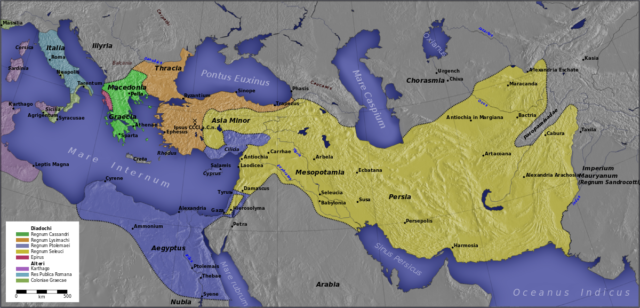
As the Roman Republic grew and grew after defeating Carthage, they eventually ran into another growing power in the Seleucid Empire, a successor state of Alexander’s Empire. The war essentially occurred because the Mediterranean wasn’t big enough for Rome and the Seleucid Empire.
In the first large-scale engagement Antiochus III noticed that he could not muster enough forces within Greece for an open-field battle against the invading Romans, so he occupied the pass at Thermopylae. The Romans had 22,000 men to Antiochus’ 12-15,000, and the Romans were very much on the offensive, not letting the pass deter them.
Antiochus had his Greek allies occupy a goat path around the pass and also the various hills and peaks around the pass as well. At Thermopylae, Antiochus ordered walls and ramparts built to dull the charge of the Romans. The Romans still charged with most of their force against the defending phalanx, but they also sent elite infantry to scale the hills and mountains to get around to the flank.
The battle in the pass was a stalemate, with the Romans grinding away but unable to break through the pass. The real battle was in the hills and peaks. Two of the important peaks were held against the Romans, but a Roman force under Cato the Elder was able to fight up and take a peak from the defending Aetolians.
Cato was able to show up on a hill overlooking the main battle and his troops’ presence uplifted the struggling Romans and struck the Seleucids with fear. Thinking that they were going to be surrounded and slaughtered like the Spartans of legend, the main army of Antiochus panicked and fled. The overall battle was short with likely less than 1,000 Romans killed, but the fleeing Seleucids struggled to escape the pass and lost most of their army. The battle was a serious blow to a power that had rivaled Rome at the start of the war. It was a signature victory to start off the conquest of the wealthy Eastern Mediterranean.
1941: Germany Forces Their Way through New Zealand and Australian Defenders at All Costs
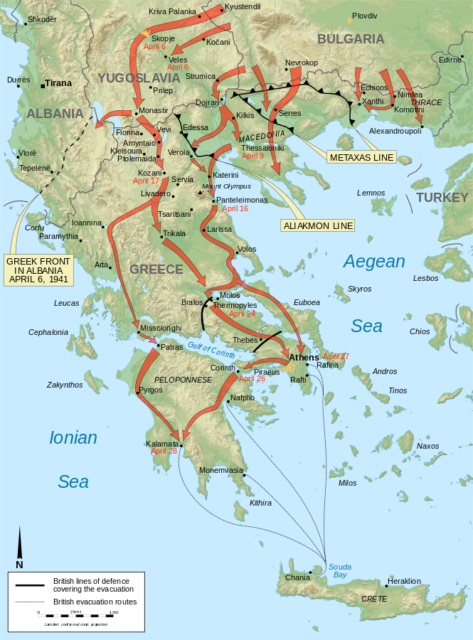
We are skipping forward over 2,000 years to the Second World War. There were other battles at Thermopylae, including a very recently discovered account of a battle there during the Gothic invasion of Byzantine Greece, but this most recent one is definitely worth a look.
The Greeks had been at war with the invading Italians earlier in 1941 and had won multiple victories. They were confident at first, at least until the German Blitzkrieg smashed through the Balkans and swooped into Northern Greece. The Germans and Italians had flung over a million men into the invasion. The unprepared Greeks fielded less than half that number, aided by 62,000 British, Australian and New Zealand forces.
The pass at Thermopylae was an obvious choice for a defense as the Germans were tearing towards the position and Allied troops needed to have time to evacuate. About 11,000 men were left at Thermopylae to give the remaining troops time to get south. The pass was much wider than in antiquity because of river deposits over the millennia. Thousands of men could fill the area, but it was still a fairly narrow and mountainous pass.
The Germans attacked with an efficient speed at Thermopylae and beyond with aircraft. The evacuation was largely carried out at night with trucks hiding under olive trees during the day to avoid German planes. Artillery duels commenced across the wider plains of Thermopylae as the Allied brigades fought against the tidal wave of Germans.
In the short battle, the Germans lost over 100 men and 15 tanks with very light Allied casualties. The holding action saved the lives of countless people as the evacuations were allowed to continue. The Allies were able to retreat safely after one of the few successes during the fall of Greece. The Greeks themselves did not participate in that specific battle, and this became a later point of controversy in Greece.
It is unlikely that the famous site will see many more battles as the widening plains make it less desirable as a key chokepoint and anyone with a superior navy can control the pass from the sea and air. The legendary pass has seen far more than Persians and Greeks, with many armies of many nations fighting pivotal battles there. It may be just a matter of time before we find literary evidence of yet another ancient battle at the hot gates.
